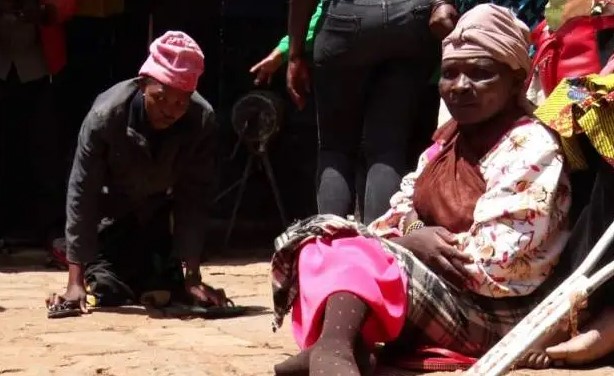Thika West administration has sent a stern warning to fake beggars who have been soliciting money from members of the public in the streets of Thika town in the pretence that they were disabled.
According to Thika West Deputy County Commissioner Mbogo Mathioya, there has been an influx in the number of beggars in the last month with some making a fortune out of unsuspecting passersby.
The DCC warned that his office would not hesitate to take action against such persons and that they would intensify crackdowns to remove them from the streets when he joined representatives from the National Council for Persons with Disabilities Kenya (NPDK) on Saturday in Thika town.
This comes after a recent crackdown on disabled people in the community revealed that the majority of them lead normal lives and that some of them fled for their lives when the police gave pursue.
Did you read this?
“We know most of the beggars on the streets of Thika town pretending to be disabled are normal. Some revealed that they make more than Kes300, 000 monthly from begging. This will not be entertained henceforth,” warned Mbogo.
Further, the DCC cautioned beneficiaries of the trade tools against selling them saying they would help empower them to earn a living.
“There are still people with the audacity of selling the tools once they receive them from the National Fund for the Disabled of Kenya (NFDK). Don’t sell these tools. They will help empower you to earn a living,” he said.
On her part, NFDK chairperson Prof Julia Ojiambo called upon the beneficiaries to use the tools for the intended purpose to better their lives.
Ojiambo confirmed receiving reports that some of them sell the items at a throwaway price to get quick cash instead of using them to change their lives.
The council donated digital cameras, salon and beauty tools, carpentry, welding machines, tailoring sewing machines, wheelchairs, walking sticks and crutches.
She said the government has committed itself to ensure that PWDs live better lives through funding of their business initiatives and the provision of mobility assistance devices.
Prof Ojiambo urged PWDs to apply for a disability membership card, advising them to get the application forms at Social Protection offices.









